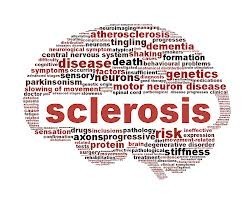Germany-based Merck already markets its own multiple sclerosis (MS) drug Rebif (interferon beta-1a) but suffered a major blow during 2011 when regulators on both sides of the Atlantic rejected its oral MS treatment Movectro (cladribine). Merck has since abandoned the project.
Merck acquires follow-on Copaxone NBCD: determined to lead in MS
Biosimilars/General
|
Posted 10/11/2011
 0
Post your comment
0
Post your comment

However, the German firm is determined to remain a world leader in this field, and has recently made two acquisitions. On 19 September 2011, it announced the purchase of a follow-on non-biological complex drug (NBCD) called PI-2301, a second-generation peptide copolymer, new version of Teva’s MS drug Copaxone (glatiramer acetate). Merck says it will investigate the application of the product in other autoimmune diseases. PI-2301 is ready to go into phase II trials.
On 4 October 2011, Merck announced the collaboration of its Merck Serono division with research-based pharmaceutical firm Ono Pharmaceuticals, Osaka, Japan for another MS hopeful. ONO-4641 is an investigational oral sphingosine-1-phosphate (S1P) receptor modulator. The drug is a novel oral compound currently in phase II of development that was originally discovered and developed by Ono for the potential treatment of MS. The agreement grants Merck worldwide exclusive license rights to the development and commercialisation of ONO-4641 outside of Japan, Korea and Taiwan.
The companies will also collaborate in Japan on the development and marketing of Stimuvax (BLP25 liposomal vaccine), which is an investigational therapeutic cancer immunotherapy designed to stimulate the body's immune system to target cancer cells that express the tumour antigen MUC-1 that is in development in phase III for patients suffering from non-small cell lung cancer.
The US patents on Copaxone are valid until 2014 and the drug is a major earner for Israel-based generics company Teva. Third-quarter sales in 2010 were US$808 million, up 4% on the same period in 2009 [1]. Merck will not be alone in the follow-on NBCD market, however, with major sales at stake, Sandoz and Mylan have already submitted abbreviated new drug applications to the FDA for approval of follow-on versions of glatiramer acetate [2].
Related articles
Guidelines needed for follow-on versions of NBCDs
Teva brings another action against Mylan
Teva bruised in Copaxone fight
References
1. GaBI Online - Generics and Biosimilars Initiative. Teva again files citizen petition against generic Copaxone [www.gabionline.net]. Mol, Belgium: Pro Pharma Communications International; [cited 2011 November 10]. Available from: www.gabionline.net/Generics/News/Teva-again-files-citizen-petition-against-generic-Copaxone
2. GaBI Online - Generics and Biosimilars Initiative. Teva continues its fight to prevent generic glatiramer acetate [www.gabionline.net]. Mol, Belgium: Pro Pharma Communications International; [cited 2011 November 10]. Available from: www.gabionline.net/Generics/News/Teva-continues-its-fight-to-prevent-generic-glatiramer-acetate
Permission granted to reproduce for personal and non-commercial use only. All other reproduction, copy or reprinting of all or part of any ‘Content’ found on this website is strictly prohibited without the prior consent of the publisher. Contact the publisher to obtain permission before redistributing.
Copyright – Unless otherwise stated all contents of this website are © 2011 Pro Pharma Communications International. All Rights Reserved.
Source: Merck
Research
Reaching ESG goals in pharmaceutical development
What is the future for the US biosimilar interchangeability designation
News
FDA approves third interchangeable ranibizumab biosimilar Nufymco
FDA approves Poherdy (first interchangeable pertuzumab) and Armlupeg (pegfilgrastim) biosimilars
Most viewed articles
The best selling biotechnology drugs of 2008: the next biosimilars targets
Global biosimilars guideline development – EGA’s perspective
Related content
Samsung Bioepis wins Pyzchiva case; Regeneron patent rulings threaten foreign biosimilars
Chinese biosimilars go global: growth, partnerships, and challenges
Stelara biosimilars enter US market with 85% discount in 2025
IFPMA publishes position on pharmacy-mediated substitution for biosimilars
Samsung Bioepis wins Pyzchiva case; Regeneron patent rulings threaten foreign biosimilars

Biosimilars/General Posted 30/07/2025
Chinese biosimilars go global: growth, partnerships, and challenges

Biosimilars/General Posted 30/04/2025
IFPMA publishes position on pharmacy-mediated substitution for biosimilars

Biosimilars/General Posted 21/03/2025
The best selling biotechnology drugs of 2008: the next biosimilars targets







Post your comment